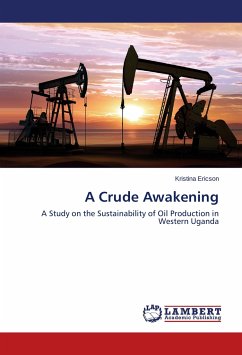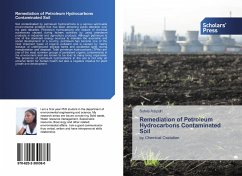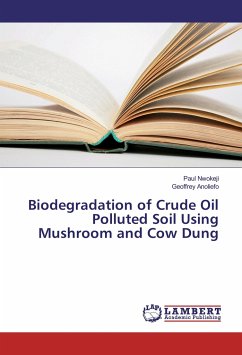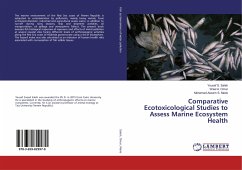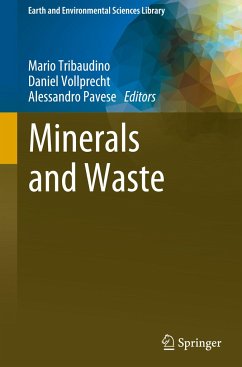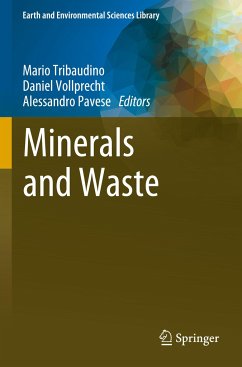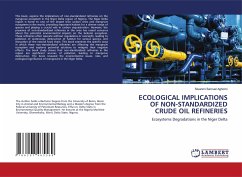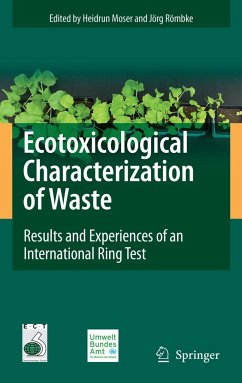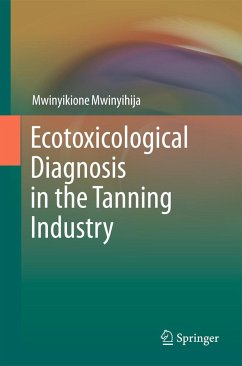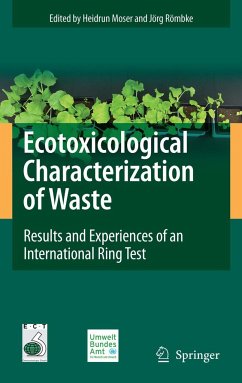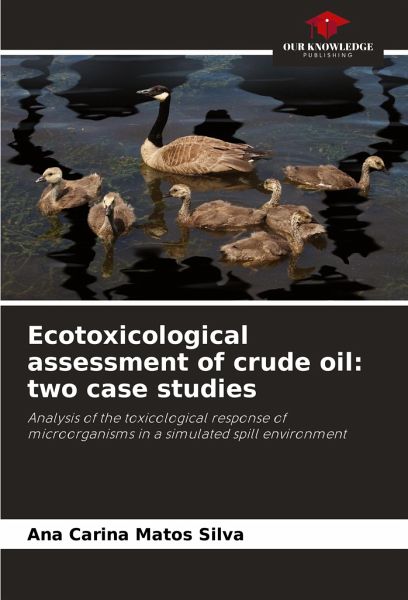
Ecotoxicological assessment of crude oil: two case studies
Analysis of the toxicological response of microorganisms in a simulated spill environment
Versandkostenfrei!
Versandfertig in 6-10 Tagen
33,99 €
inkl. MwSt.

PAYBACK Punkte
17 °P sammeln!
In an oil spill in mangrove areas, there is a high possibility of oil aggregation with suspended particulate matter, which may determine the bottom sediment as the final destination of the OSA (Oil-Suspended Particulate Aggregate). In many cases, this formation can pose a great risk to benthic and nectonic organisms. Ecotoxicity tests with these organisms have been widely used as one of the most accurate forms of biological monitoring of anthropogenic impacts on different ecosystems. This study evaluates the ecotoxicity of OSA formation in mangrove simulations, using sediment samples collected...
In an oil spill in mangrove areas, there is a high possibility of oil aggregation with suspended particulate matter, which may determine the bottom sediment as the final destination of the OSA (Oil-Suspended Particulate Aggregate). In many cases, this formation can pose a great risk to benthic and nectonic organisms. Ecotoxicity tests with these organisms have been widely used as one of the most accurate forms of biological monitoring of anthropogenic impacts on different ecosystems. This study evaluates the ecotoxicity of OSA formation in mangrove simulations, using sediment samples collected along the Rio Pardo estuary, in the municipality of Canavierias, Bahia, through pilot-scale tests with simulation units, carried out with oil from the Campos basin. The procedure was carried out using acute and chronic exposure toxicology tests to determine the CL50 (50% lethal concentration) using the copepod Nitokra sp. and the microcrustacean Artemia salina.





